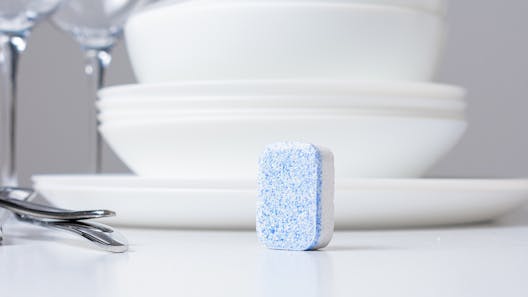Pros of using a dishwasher include convenience and water efficiency; cons are the potential for high energy use and upfront costs. Dishwashers offer a practical solution to the daily chore of washing dishes.
By automating the cleaning process, they save time and can use less water than hand washing, making them an eco-friendly option for many households. Built-in heaters and powerful jets ensure a thorough clean, often superior to conventional hand washing. They also offer hygiene benefits by using hotter water than hands can typically tolerate.
On the flip side, dishwashers can be expensive to purchase and install. They also require electricity to run, which can contribute to higher household energy bills, especially if used frequently. Finally, dishwashers might not accommodate large or oddly shaped items, and they sometimes necessitate pre-rinsing, slightly diminishing their convenience factor. Overall, the decision to use a dishwasher hinges on balancing the importance of convenience and efficiency against energy use and cost considerations.
Table of Contents
Introduction To Dishwashers
Dishwashers have become a staple in modern kitchens, taking on the task of cleaning dishes with efficiency and ease. These clever appliances save us time and reduce the manual labor of scrubbing pots and pans. Understanding the evolution of dishwashers helps appreciate their role in contemporary living.
Early Innovations To Modern Machines
The genesis of dishwashers dates back to the 1850s. Early devices were mechanical and required manual operation. Innovation has transformed them into the sophisticated, electronic machines we use today. Modern dishwashers boast a range of features like multiple wash cycles, energy-saving modes, and advanced drying systems.
Growing Popularity In Household Use
Over the decades, dishwashers have gained immense popularity. Once a luxury, they are now a common sight in households across the globe. Their benefits include water conservation, time efficiency, and improved cleanliness. As families and lifestyles become busier, the dishwasher’s role has evolved from a convenience to a necessity.
Pros of Dishwashers | Cons of Dishwashers |
|---|---|
Time-saving | Initial cost |
Hygienic cleaning | Repair costs |
Water-efficient | Energy use |

Credit: www.myappliances.co.uk
Convenience And Time Savings
Imagine having more time for yourself and less work in the kitchen. Dishwashers bring this convenience and save you precious minutes. They allow you to sit back while your dishes get squeaky clean. Let’s explore how they can make life easier and more efficient.
Efficiency In Cleaning
Dishwashers are designed for one thing: to clean dishes effectively. They use hot water and powerful jets. This combination removes tough grime and food residue. Your dishes come out looking brand new. Here’s what sets them apart:
- Consistent Clean: Every plate, spoon, and glass gets an equal level of clean.
- Sanitization: High temperatures help sanitize dishes better than handwashing.
- Water Saving: They use less water than washing dishes by hand.
Multitasking Made Easier
With a dishwasher, you can start a cycle and focus on other tasks. Whether it’s spending time with family or enjoying a hobby, you’re free to engage elsewhere. The benefits include:
- Time Freedom: Load the dishwasher, press start, and do what you love.
- Less Clutter: Dirty dishes go straight in the machine, keeping your kitchen tidy.
- Effectiveness: The machine works while you’re busy, optimizing your day.
Energy And Water Usage
Energy and Water Usage is a hot topic when considering kitchen appliances, especially dishwashers. Understanding the impact of a dishwasher on your utility bills and the environment is key. Do they waste water, or save it? Do they consume more energy than hand washing? Let’s delve into the pros and cons with respect to energy and water use.
Reducing Consumption With Technology
Modern dishwashers come with impressive tech that helps reduce both water and energy consumption. Eco-friendly modes, soil sensors, and energy-efficient certifications like ENERGY STAR make a difference. Here’s how technology in dishwashers can lead to savings:
- Eco-friendly modes optimize water and power usage.
- Soil sensors adjust the cycle to the dish load, preventing waste.
- Efficient drying techniques, like heat exchange, lessen energy usage.
Comparing To Hand Washing
The debate between hand washing and using a dishwasher can be intense. Some key factors can influence the outcome. Let’s compare:
Dishwasher | Hand Washing | |
|---|---|---|
Water | Uses less per cycle | Can use more overall |
Energy | Lower with efficient models | Depends on water heating method |
Time | Free up personal time | Requires active participation |
While a loaded dishwasher uses a fixed amount of water, hand washing dishes can lead to unnecessary water running, especially when rinsing. Energy consumption with dishwashers may also be lower, as hand washing often involves heating water for longer periods.
Environmental Impact
The Environmental Impact of dishwasher use on our planet is a pressing concern. Dishwashers need water, energy, and detergents to operate. While they offer convenience, their effects on the environment can vary. Understanding these factors helps us make informed decisions for a greener home.
Detergent Use And Eco-friendliness
Dishwashers require detergents to clean efficiently. The impact of these substances interacts with the environment. Not all detergents are equal in their eco-friendliness.
- Phosphates, common in detergents, can lead to water pollution. They harm aquatic life.
- Eco-friendly detergents contain biodegradable ingredients. They are safer for the environment.
- Choosing a dishwasher with an eco-mode reduces energy and detergent use. It minimizes the environmental impact.
Using eco-certified detergents benefits the planet. Seek out products with recognized environmental seals of approval.
Recycling And End-of-life Disposal
When dishwashers reach the end of their lifespan, disposal becomes an issue. The materials and components can stress the environment if not handled properly.
- Dishwashers contain metals and plastics which are recyclable. Responsible recycling prevents these materials from entering landfills.
- E-waste regulations guide the proper disposal of electronic appliances.
- Companies often offer take-back programs. These programs ensure that old dishwashers are disposed of in an eco-friendly manner.
By choosing brands that support recycling programs, you contribute to reducing environmental harm. Always recycle or donate your old dishwasher if possible.
Economic Considerations
Thinking about the economics of dishwashers opens up a discussion on cost-efficiency and spending wisdom. This balance plays a crucial role in decision-making. Let’s dive into the initial costs and potential savings dishwashers offer.
Initial Investment And Long-term Savings
Dishwashers require an upfront cost that varies based on features. High-end models come with a steeper price but offer more efficiency and advanced functions. These initial costs can be offset by long-term savings in water and energy consumption.
Initial Cost | Energy Efficiency | Potential Savings |
|---|---|---|
$400 – $700 | Energy Star models | Up to $35 per year |
Investing in an Energy Star-certified dishwasher could lead to notable savings over the years, shrinking its impact on your wallet post-purchase.
Maintenance And Repair Costs
Regular upkeep and the occasional repair come with owning a dishwasher. These expenses should be part of the economic analysis. Well-maintained dishwashers are less likely to malfunction, ensuring better long-term functionality and cost savings.
- Basic cleaning: Simple vinegar runs to remove build-up
- Professional servicing: Recommended annually
- Part replacements: Racks, seals, and spray arms
Maintenance tasks can be performed at home, while complex repairs might need a technician. A prolonged lifespan for your dishwasher equates to stretched value from your initial investment.
Hygiene And Health Benefits
Keeping dishes clean is about more than just appearances. Dishwashers excel in promoting better hygiene and health for families. These machines use advanced methods to ensure that kitchenware is not just spotless but also hygienically safe to use.
High-temperature Cleaning
One of the standout features of dishwashers is their ability to clean with hot water. High temperatures effectively sanitize dishes, killing potential pathogens. This thermal cleaning goes beyond what can typically be tolerated by hand-washing.
- Temperatures over 60°C are common in dishwasher cycles.
- Heat not only cleans but also speeds up drying, reducing moisture that can breed microbes.
Reduction Of Bacteria And Germs
Dishwashers use detergents and rinse aids designed for optimal germ elimination. Their efficacy is heightened by the mechanical action of the dishwasher.
Method | Benefit |
|---|---|
Intense Wash Cycles | Dislodge and remove food particles |
Powerful Detergents | Target and break down bacteria |
Filtration Systems | Capture and eliminate contaminants |
Rinsing dishes in a dishwasher reduces the risk of cross-contamination that might occur when hand-washing multiple items together.
Limitations Of Dishwasher Use
While dishwashers bring convenience to our kitchens, certain limitations warrant careful consideration. Understanding these can help you get the most out of your dishwasher without unexpected issues.
Items Unsuitable For Dishwashers
Not all kitchen items are dishwasher-friendly. Placing the wrong items inside may cause damage. Here’s a list of items generally unfit for dishwasher use:
- Wooden utensils and boards: Wood can warp or crack due to heat and moisture.
- Sharp knives: The abrasive process can dull their cutting edges.
- Nonstick pans: The nonstick coating can wear off, diminishing its quality.
- Certain plastics: High temperatures can warp or melt some plasticware.
- Glued items: Items with adhesive may come undone.
- Cast iron: Dishwashers can strip away the seasoning on cast iron cookware.
- Delicate glassware: Some glass may crack or become cloudy.
Space And Capacity Constraints
Dishwashers come with defined space and capacity. These constraints can affect how much you can wash at once. Consider the following points:
Dishwasher Type | Capacity |
|---|---|
Compact | Smaller loads, ideal for singles or couples. |
Standard | Suitable for families, holds more dishes. |
Large Capacity | Best for large families or those who entertain often. |
Remember that overloading the dishwasher can lead to poorly cleaned dishes and can increase the risk of damage. Even with larger models, bulky pots and pans can take up too much space, leading to multiple washing cycles.
Credit: www.quora.com
Aesthetic And Functional Design
The aesthetic and functional design of dishwashers serves more than its primary purpose of cleaning dishes. Offering stylish looks and tech-savvy operations, it adds a modern touch to kitchen spaces while simplifying the cleaning process. Let’s explore how the design of dishwashers can blend with kitchen decor and introduce cutting-edge features to enhance your home life.
Integration Into Kitchen Decor
Dishwashers seamlessly integrate into kitchen aesthetics, offering various designs to suit personal tastes. From traditional to modern styles, they complement your kitchen’s ambiance. Let’s detail the pros and cons of a dishwasher’s integration:
- Pros:
- Enhances kitchen appearance
- Maintains design consistency
- Customizable panels to match cabinetry
- Cons:
- May require custom design for perfect fit
- Integration can be complex in some kitchens
- Matches specific decor, limiting future changes
Innovations In Dishwasher Features
Modern dishwashers boast innovative features that push the boundaries of traditional designs. Expect smart home connectivity, adjustable racks, and more. The following table outlines the advantages and challenges:
Feature | Pros | Cons |
|---|---|---|
Smart Tech Integration | Remote control, notifications | Requires compatible smart home system |
Adjustable Racks | Flexible loading options | Complexity may intimidate some users |
Silent Operation | Low noise levels enhance comfort | May come with a higher price tag |
Energy Efficiency | Reduces water & electricity usage | Initial costs can be higher |
Decision-making Factors
Before adding a dishwasher to your kitchen, it’s crucial to weigh decision-making factors. Each household should consider its unique needs. This not only covers the appliance’s practicality but also how it meshes with your lifestyle and home dynamics.
Lifestyle And Household Size Considerations
Think about how a dishwasher fits into your daily life:
- Busy families benefit from saved time.
- Individuals who entertain often find dishwashers useful for cleanup.
- For small households or infrequent cooks, a dishwasher may be underused.
A dishwasher’s value changes with the number of people in a home. Large families might find dishwashers essential. In contrast, singles or couples could decide the convenience doesn’t justify the space or cost.
The Balance Between Pros And Cons
Consider both sides:
Pros | Cons |
|---|---|
Saves time on washing dishes by hand | Can increase water and energy bills |
Reduces household chores | May require expensive repairs |
Keeps kitchen counters clutter-free | Needs regular maintenance and cleaning |
Can sanitize dishes at high temperatures | Might take up valuable kitchen space |
When the pros outweigh the cons, a dishwasher is a smart addition. Each con presents a potential challenge. Determine if these are deal-breakers for your home. Some may prefer the manual method to avoid extra expenses. Others will see the initial cost as a worthwhile investment for future convenience.
Frequently Asked Questions
What Are The Disadvantages Of A Dishwasher?
Dishwashers can be expensive, increase utility bills, and may require pre-rinsing. Their long cycle times limit quick access to clean dishes and they might not accommodate large or oddly shaped items. Dishwashers may also become less efficient if not regularly maintained.
Is It Better To Use A Dishwasher Or Not?
Using a dishwasher can be more efficient and eco-friendly than hand washing, as it often uses less water and energy. It simplifies the cleaning process and can better sanitize dishes with high temperatures. Choose Energy Star-rated models for the best results.
Is It Cheaper To Hand Wash Or Use A Dishwasher?
Using a dishwasher is generally cheaper than hand-washing, especially for full loads, as it uses less water and energy.
Is Having A Dishwasher Worth It?
Having a dishwasher is worth it for saving time, reducing stress during clean-up, and potentially saving water compared to hand washing, especially for households with frequent dish loads.
Bottom Line
Weighing the pros and cons of dishwasher use is essential for any modern household. Each kitchen’s needs and priorities differ greatly. While dishwashers offer unmatched convenience and efficiency, they also present potential downsides such as mechanical failures and regular maintenance.
Ultimately, your decision should align with your lifestyle, budget, and environmental considerations, ensuring the choice enhances your daily routine without undue burden.



